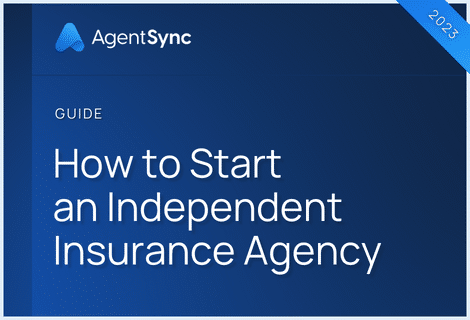

State by state variations of laws, compliance protocols, industry transparency, and general regulatory cultures can lend one the impression that keeping up with industry changes is a little bit like herding cats. So, what better way to wrangle some of the more localized insurance news than in a Regulatory Roundup?
On an ongoing basis, in no particular order or rank, we’re wrestling the various regulatory changes, compliance actions, and commissioner decisions into our roundup. As a disclaimer: There’s a lot going on at any given time in these here United States, so this isn’t a comprehensive picture of state-level action by any means. Think of it as, instead, a sample platter of regulation.
Also important to note: If we’re recapping interpretations of legal decisions, this is some armchair insurance speculation and not at all legal advice. If you need legal advice, get a lawyer.
North Carolina Department of Insurance changes to adjuster licensing
North Carolina has changed “self-employed insurance adjusters” and “company/independent firm adjusters” to be the same license type: adjuster.
A news release from the North Carolina Department of Insurance alerted industry adjusters that the state would adjust (get it?) the license types automatically, needing no action from the adjusters themselves.
Company/independent firm adjusters will see their license change, while self-employed insurance adjusters will see their status change to “canceled” as of Dec. 8, 2022, and see an “active” basic adjuster license start the same date. The news release from Insurance Commissioner Mike Causey’s office also notes these adjusters shouldn’t see any change to continuing education requirements.
“…any Continuing Education already completed will be applied to the ‘Adjuster’ license,” the news release states.
The state will maintain separate license types for hail adjusters and public adjusters.
Fannie Mae, Freddie Mac accept Florida plan for homeowners’ insurance
Major mortgage lenders associations notified Florida’s Office of Insurance Regulation in early December that the state’s plan to reinforce solvency will – on a provisional basis – be an acceptable proof of insurance for homebuyers in the state.
In July, after the industry discovered Florida’s main ratings agency planned to downgrade its rating of several property insurers, Florida’s OIR offered state-backed reinsurance and backup coverage for policies held by the affected insurance carriers. Under this arrangement, the state’s insurer of last resort, Citizens Property Insurance Corporation, is providing foundational support for numerous homeowners through July 2023.
The Federal National Mortgage Association (Fannie Mae) and the Federal Home Loan Mortgage Corporation (Freddie Mac) gave their various servicers and partners guidance for accepting state-backed insurance as a qualifying proof of insurance for mortgages in the state. Typically, Fannie Mae and Freddie Mac require government-funded mortgages to carry homeowners’ insurance policies that are backed by insurers with positive solvency outlooks.
Then-Florida Insurance Commissioner David Altmaier announced these agencies accepted Florida’s stability measures under a provision that the state would act as a reinsurer, with the state’s reinsurance adequately addressing any solvency concerns. The aim of this “unprecedented” reinsurance agreement is to encourage Floridians to continue to buy and maintain policies in the private insurance market, and to keep Citizens as a true “last resort.”
Other state regulatory changes
Colorado has adopted an emergency regulation requiring health care sharing ministries to report their plan information to the state on a recurring cycle by March 1 every year following a set template. The state has also asked insurers to extend additional living expenses (ALE) coverage to insureds who are still affected by the fallout from the Marshall Fire.
North Dakota will post insurance carrier appointment renewal invoices for payment from March 2 to April 30, 2023, which must be paid via NIPR.
Hawaii has adopted a number of changes since moving over to State Based Systems (SBS) for more state functions. Among the changes: Individual producer license renewals will no longer be on the 16th of the birth month but at the end of the producer’s birth month.
Wyoming will email insurance carrier appointment renewal invoices for payment, and invoices will be open from Feb.1 to March 31, 2023.
Maryland adopted amendments to the state’s insurance code more explicitly giving the commissioner the power to apply emergency regulations in the case of a statewide or nationwide disaster declaration. You know, like in a pandemic or something, hypothetically. The state has also opened a comment period for a law that would make it slightly easier for seniors to exchange Medicare Supplement policies without health rating. (If you need a brushup, Medicare 101 is here.)
Wisconsin Insurance Commissioner Nathan Houdek announced in a news release that the Centers for Medicare and Medicaid Services had extended the state’s 1332 waiver for the Wisconsin Healthcare Stability Plan (WIHSP) – a state-backed reinsurance program – to operate through 2028. WIHSP serves to make Wisconsin’s Affordable Care Act plans less expensive for participants.
Connecticut has waived the requirement for insurance pre-authorizations for consumers in state-regulated health insurance plans if those consumers are in post-acute care (rehabilitation services) following treatment for COVID-19, Respiratory Syncytial Virus (RSV), or influenza. The state Department of Insurance (DOI) has said, with the need for beds as winter viral loads increase, waiving pre-authorizations can more quickly move patients out of much-needed hospital beds and into rehabilitative care.
Tennessee issued a bulletin in December reminding insurers that do business in that state of reporting requirements for their fire losses there.
Rhode Island posted a roundup of 2022 legislative changes that will go into effect this year and next, including provisions to allow those with adjuster certificates through credible organizations to avoid taking the state licensing exam, and provisions reducing bond requirements for surplus insurers.
While these points of interest aren’t comprehensive, our knowledge of producer license and compliance maintenance is. See how AgentSync can help make you look smarter today.

